KEY FINDINGS
THE 2023 SURVEY OF THE ATTITUDES OF VOTERS IN EIGHT WESTERN STATES
JANUARY 2023
CONDUCTED BY: LORI WEIGEL & KATHRYN HAHNE/ NEW BRIDGE STRATEGY

DAVE METZ / FAIRBANK, MASLIN, MAULLIN, METZ & ASSOCIATES


THE 2023 SURVEY OF THE ATTITUDES OF VOTERS IN EIGHT WESTERN STATES
JANUARY 2023
CONDUCTED BY: LORI WEIGEL & KATHRYN HAHNE/ NEW BRIDGE STRATEGY

DAVE METZ / FAIRBANK, MASLIN, MAULLIN, METZ & ASSOCIATES

3,413telephone(cellandlandline)andonlineinterviewsviaemailinvitationwith registeredvotersineightstates:Arizona(N=504),Colorado(N=437),Idaho(N=402), Montana(N=406),Nevada(N=427),NewMexico(N=423),Utah(N=413),and Wyoming(N=401).
Twooversampleswereconductedinordertohavegreaterabilitytoreport distinctionsamongracial/ethnicsub‐groups.Weconductedadditionalinterviewsto reachatotalofN=200BlackvotersandatotalofN=204NativeAmericanvoters, whichwerethenweightedbacktoreflecttheirtrueproportionswithinthe electorate inthisregion.
InterviewswereconductedJanuary5‐22,2023,inSpanishandEnglish.


Theeffectivemarginoferroris+2.4%atthe95%confidenceintervalforthetotal sample;andatmost+4.9%foreachstate.
Thetotalnumbershavebeenstatisticallyweightedtoreflectthetruegeographic distributionofvotersthroughouttheregion.Interviewswithineachstatewere distributedproportionallybyregion.
Comparisonsaremadetosimilarlyconductedsurveyseachyearfrom2011to 2022.
Bi‐partisanresearchteamofNewBridgeStrategy(R)andFairbank,Maslin,Maullin, Metz&Associates(D).

Over the past decade, the number of states included in this survey has increased.

In order to provide accurate comparisons over time, we compare data based on only the states interviewed in that year as follows:
2011 5 States: CO, MT, NM, UT & WY

2012‐2015 6 States: AZ, CO, MT, NM, UT
& WY 2016‐2017 7 States: AZ, CO, MT, NM, NV,

UT & WY 2018‐20238 States: AZ, CO, ID, MT, NM, NV, UT & WY


Over the 13 years of surveying Western voters many things have changed: three Presidents, new Governors, economic woes and booms, and even a pandemic.


What has remained incredibly consistent is Westerners prioritizing conservation of the land, water, wildlife, and their ability to enjoy the outdoors.
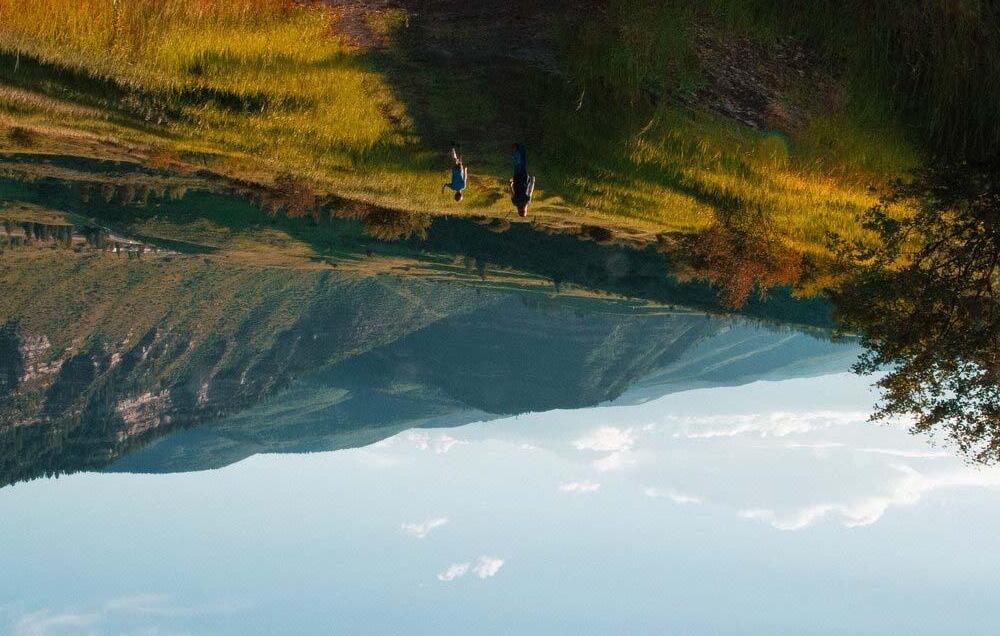



The rising cost of livingThe price of gasoline

Extremely/Very Serious Problem


Total Serious Problem

Foreachone,pleasetellmeifyouthinkitisanextremelyseriousproblem,averyseriousproblem,asomewhatseriousproblem,ornotaproblem in(STATE).


There has also been a 28-point increase since 2016 in the share of Western voters saying too many people moving into their state is a serious problem.

Too many people moving into STATE
20162023
Extremely/Very Serious Problem




Foreachone,pleasetellmeifyouthinkitisanextremelyseriousproblem,averyseriousproblem,asomewhatseriousproblem,ornotaproblem in(STATE).ToomanypeoplemovingintoSTATE(AskedN=1,704Respondents)




The current shortage of water supplies in the West is seen by most as a serious crisis or significant problem.
50% A serious crisis
39% A significant problem, but not a crisis

7% A minor problem


4% Not really a problem

WhichofthefollowingwouldyousaybestdescribesthecurrentshortageofwatersuppliesintheWest?

A majority of voters in four of the eight states characterize the current water situation in the West as a “serious crisis,” and overwhelming majorities see it as a problem.

WhichofthefollowingwouldyousaybestdescribesthecurrentshortageofwatersuppliesintheWest?





Water supplies have been a consistent concern, but it is spiking now –over the last three years nearly nine in ten rate it a serious problem.

Foreachone,pleasetellmeifyouthinkitisanextremelyseriousproblem,averyseriousproblem,asomewhatseriousproblem,ornotaproblem in(STATE).Inadequatewatersupplies(AskedN=1,709Respondents)





Extremely/Very Serious Problem



Total Serious Problem
Foreachone,pleasetellmeifyouthinkitisanextremelyseriousproblem,averyseriousproblem,asomewhatseriousproblem,ornotaproblem in(STATE).Inadequatewatersupplies(AskedN=1,709Respondents)



Inadequate water supplies is seen as a serious problem by most voters, with greater intensity in the Southwestern states.
Likewise, the low level of water in rivers has registered more as a serious problem in the last two years.



Foreachone,pleasetellmeifyouthinkitisanextremelyseriousproblem,averyseriousproblem,asomewhatseriousproblem,ornotaproblem in(STATE). Lowlevelofwaterinrivers(AskedN=1,709Respondents)




Extremely/Very Serious Problem Total Serious Problem




Foreachone,pleasetellmeifyouthinkitisanextremelyseriousproblem,averyseriousproblem,asomewhatseriousproblem,ornotaproblem in(STATE). Lowlevelofwaterinrivers(AskedN=1,709Respondents)

Again, the levels of concern are particularly intense the farther South one moves in the region.
Concerns about drought jumped up last year and remain high even with record rain and snow.
Extremely/Very Serious Problem



Total Serious Problem
Foreachone,pleasetellmeifyouthinkitisanextremelyseriousproblem,averyseriousproblem,asomewhatseriousproblem,ornotaproblem in(STATE).Drought(AskedN=1,709Respondents)



Over four-fifths of voters in Utah say that drought is an extremely or very serious problem in their state.

Foreachone,pleasetellmeifyouthinkitisanextremelyseriousproblem,averyseriousproblem,asomewhatseriousproblem,ornotaproblem in(STATE).Drought(AskedN=1,709Respondents)





In three of the four states that the Colorado River flows through, more voters today describe the river as “at risk” than ever before.

I’mgoingtoreadyoualistofwordsandphrases,andpleaseindicatewhetheryouthinkeachonedescribestheColoradoRiververywell, somewhatwell,notverywell,ornotwellatall. Atrisk(AskedN=893Respondents)





Strong majorities of voters in the Colorado River states say that the river is critical to their state’s economy.
I’mgoingtoreadyoualistofwordsandphrases,andpleaseindicatewhetheryouthinkeachonedescribestheColoradoRiververywell, somewhatwell,notverywell,ornotwellatall.CriticaltoSTATE’seconomy(AskedN=893Respondents)






There is a decline in voters who say that the Colorado River is an attraction for tourism and recreation, potentially due to lower water levels.
I’mgoingtoreadyoualistofwordsandphrases,andpleaseindicatewhetheryouthinkeachonedescribestheColoradoRiververywell, somewhatwell,notverywell,ornotwellatall. Anattractionfortourismandrecreation(AskedN=888Respondents)






Most voters also say that the Colorado River is “in need of urgent action,” with greater intensity in Arizona and Nevada.
Very Well
Total Well

I’mgoingtoreadyoualistofwordsandphrases,andpleaseindicatewhetheryouthinkeachonedescribestheColoradoRiververywell, somewhatwell,notverywell,ornotwellatall.Inneedofurgentaction(AskedN=888Respondents)





Voters are most likely to say that industry and businesses use the most water in their state.

And,whichoneofthefollowingdoyouthinkusesthemostwaterinyourstate?







Voters in Idaho, Montana, and Wyoming are much more likely to say farmers and ranchers use the most water. In the other states, voters are more likely to say industry and businesses.
And,whichoneofthefollowingdoyouthinkusesthemostwaterinyourstate?





The younger you are the more likely you are to think industry and businesses use the most water; Baby Boomers and older accurately point to farmers and ranchers.
And,whichoneofthefollowingdoyouthinkusesthemostwaterinyourstate?





Investing in water infrastructure to reduce leaks and waste
Requiring local governments to determine whether there is enough water available before approving new residential development projects
Increasing the use of recycled water for homes and businesses
Providing financial incentives to homeowners and businesses to replace lawns and grassy areas with water-saving landscaping
Prohibit grass lawns at new development and homes

Providing financial incentives to farmers to temporarily take land out of production during severe water shortages

Foreachone,pleaseindicatewhetherthatissomethingyouwouldsupportoropposeinyourcommunityorstate.




A majority of Westerners support every single policy action we tested to help address water supply issues.
Idaho Invest in water infrastructure
61%


Montana Invest in water infrastructure
57%
Wyoming Invest in water infrastructure
Nevada Enough water before new development
69%
Utah Invest in water infra‐structure

63%

Arizona Invest in water infrastructure
65%
51% Colorado Enough water before new development
63% New Mexico Invest in water infrastructure
60%
Foreachone,pleaseindicatewhetherthatissomethingyouwouldsupportoropposeinyourcommunityorstate.

The most-supported action to address inadequate water supplies in most states is to invest in water infrastructure.
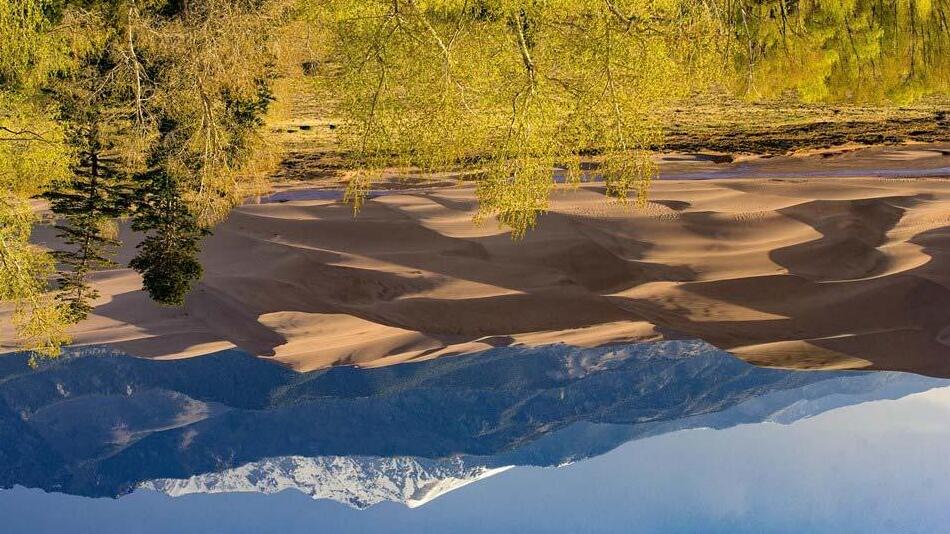


To protect sources of drinking water
To ensure healthier forests
To conserve wildlife habitat and migration routes
To help threatened wildlife
To provide opportunities for children to explore and learn about nature

To conserve natural areas that connect lower income or communities of color which have historically lacked access to the outdoors
To provide opportunities for hunting, fishing and outdoor recreation

To provide opportunities for people to see stars at night without light pollution
Foreachofthefollowingitems,pleaseindicateifyouthinkthatparticularreasonisveryimportant,somewhatimportant,nottooimportant,ornot importantatalltoyoupersonally.




Protecting sources of drinking water is seen as the most important conservation goal in Western states.
With incredible consistency over the last five years, Western voters prefer that their Member of Congress protect natural resources on public lands rather than produce energy there.
Ensuring we protect sources of clean water, our air quality and wildlife habitat while providing opportunities to visit and recreate on our national public lands.
Ensuring we produce more domestic energy by maximizing the amount of national public lands available for responsible oil and gas drilling and mining.
WhichonewouldyoupreferyourMemberofCongressplacemoreemphasisoninupcomingdecisionsregardingnationalpubliclands?





Protecting natural attributes is strongly preferred in every state, except Wyoming where voters are divided.
WhichonewouldyoupreferyourMemberofCongressplacemoreemphasisoninupcomingdecisionsregardingnationalpubliclands?





Executive action to establish national monuments is embraced by more than seven-in-ten voters in every Western state.
Strongly Support





DoyousupportoropposePresidentscontinuingtousetheirabilitytoprotectexistingpubliclandsasnationalmonuments?

Strongly Support





DoyousupportoropposePresidentscontinuingtousetheirabilitytoprotectexistingpubliclandsasnationalmonuments?

Gen Z voters are near unanimous in supporting executive action to establish national monuments, although there is also solid support from voters of other generations as well.
Across party lines, most voters support executive action to establish national monuments, including nearly three-quarters of conservative Republicans.
Strongly Support Total Support





DoyousupportoropposePresidentscontinuingtousetheirabilitytoprotectexistingpubliclandsasnationalmonuments?



Foreachone,pleasetellmeifyouwouldsupportoropposeasimilarproposalinyourstate.Achievinganationalgoalofconservingthirtypercent ofland andinland waters in America,andthirtypercentofitsoceanareasbytheyear2030.(AskedN=1,704Respondents)


2020languageread–“Settinganationalgoalofprotecting30percentofAmerica'slandsandoceanareasbytheyear2030”and2022languageread “SettinganationalgoalofconservingthirtypercentoflandandinlandwatersinAmerica,andthirtypercentofitsoceanareasbytheyear2030.”


The 30x30 conservation goals are now registering the highest overall support in the last four years.





Foreachone,pleasetellmeifyouwouldsupportoropposeasimilarproposalinyourstate.Achievinganationalgoalofconservingthirty percentoflandandinlandwatersinAmerica,andthirtypercentofitsoceanareasbytheyear2030.(AskedN=1,704Respondents)

Nearly three-fifths of Nevada voters strongly support the national 30% conservation goals.
The 30x30 conservation goals have majority support across party lines, including over two-thirds of conservative GOP voters.
Strongly Support




Total Support

Foreachone,pleasetellmeifyouwouldsupportoropposeasimilarproposalinyourstate.Achievinganationalgoalofconservingthirty percentoflandandinlandwatersinAmerica,andthirtypercentofitsoceanareasbytheyear2030.(AskedN=1,704Respondents)

Support for greater conservation may be rooted in Westerners’ consistent concerns about the loss of natural areas, which fourin-five say is a serious problem.

Foreachone,pleasetellmeifyouthinkitisanextremelyseriousproblem,averyseriousproblem,asomewhatseriousproblem,ornotaproblem in(STATE). Lossofnaturalareas(AskedN=1,704Respondents)





Four-in-five Western voters say loss of natural areas is a problem in their state. Majorities in Colorado and Montana say say it is an extremely or very serious problem.
Extremely/Very Serious Problem






Foreachone,pleasetellmeifyouthinkitisanextremelyseriousproblem,averyseriousproblem,asomewhatseriousproblem,ornotaproblem in(STATE). Lossofnaturalareas(AskedN=1,704Respondents)
Western voters have become slightly more likely to support Native American tribes having greater input into decisions about areas containing sacred/culturally important sites.

Foreachone,pleasetellmeifyouwouldsupportoropposeasimilarproposalinyourstate.EnsuringthatNativeAmericantribeshave greaterinputintodecisionsmadeaboutareaswithinnationalpubliclandsthatcontainsitessacredtoorculturallyimportantto theirtribe.(AskedN=1,704Respondents)





At least three-in-five voters from Arizona, Colorado, Nevada, and New Mexico strongly support greater input from Native American tribes about areas with sacred/culturally important sites.





Foreachone,pleasetellmeifyouwouldsupportoropposeasimilarproposalinyourstate.EnsuringthatNativeAmericantribeshave greaterinputintodecisionsmadeaboutareaswithinnationalpubliclandsthatcontainsitessacredtoorculturallyimportantto theirtribe.(AskedN=1,704Respondents)






Foreachone,pleasetellmeifyouwouldsupportoropposeasimilarproposalinyourstate.EnsuringthatNativeAmericantribeshave greaterinputintodecisionsmadeaboutareaswithinnationalpubliclandsthatcontainsitessacredtoorculturallyimportantto theirtribe.(AskedN=1,704Respondents)

Not surprisingly, Native American voters are the most likely to support greater input from tribes regarding areas that contain sacred/culturally important sites.
Over three-in-five Arizona voters continue to support legislation to make permanent the current ban on new uranium and other mining on existing public lands surrounding the Grand Canyon.
Foreachone,pleasetellmeifyouwouldsupportoropposeasimilarproposalinyourstate.Enactinglegislationthatwouldmake permanentthecurrentbanonnewuraniumandotherminingonexistingpubliclands,roughlyonemillionacres,surroundingthe GrandCanyon.(AskedN=504RespondentsinArizona)






Protecting existing public lands surrounding the Dolores River Canyon still has overwhelming support among Colorado voters.

Foreachone,pleasetellmeifyouwouldsupportoropposeasimilarproposalinyourstate.Protectingexistingpubliclandssurrounding theDoloresRiverCanyoninwesternColoradotoconserveimportantwildlifehabitat,andsafeguardthearea'sscenicbeautyand supportoutdoorrecreation.(AskedN=437RespondentsinColorado)







Foreachone,pleasetellmeifyouwouldsupportoropposeasimilarproposalinyourstate.EnactingtheBlackfootClearwaterStewardship ActinwesternMontana,whichwouldensurehuntingandfishingaccess;safeguardstreamsflowingintotheBlackfootRiver;add nearlyeightythousandacresofexistingpubliclandstotheBobMarshall,Scapegoat,andMissionMountainswildernessareas; andcreate twonewrecreation areas andsustaintimber harvestandhabitatrestoration.(AskedN=406RespondentsinMontana)




More Montana voters support the enactment of the Blackfoot Clearwater Stewardship Act than did last year.




Foreachone,pleasetellmeifyouwouldsupportoropposeasimilarproposalinyourstate.Permanentlypreservingexistingnationalpublic landsintheCajadelRioplateau,whichwouldincreaseprotectionsforthegrasslandsandcanyonsalongtheSantaFeRiverand surroundingareas,andensureaccessforoutdoorrecreation.(AskedN=423RespondentsinNewMexico)


A majority of voters in New Mexico strongly support the permanent preservation of existing national public lands in the
Rio plateau.
Nevada voters are now more likely to support designating existing public lands just east of the Mojave National preserve as the Spirit Mountain national monument.


Foreachone,pleasetellmeifyouwouldsupportoropposeasimilarproposalinyourstate.Designatingexistingpubliclandsjusteastof theMojaveNationalPreserveinsouthernNevadaastheSpiritMountainnationalmonument,whichwouldensureoutdoor recreationandhelppreservesacredNativesiteswhilenotallowingenergydevelopmentorminingontheselands.(AskedN=427 RespondentsinNevada)




Arizona: Enacting legislation that would make permanent the current ban on new uranium and other mining on existing public lands, roughly one million acres, surrounding the Grand Canyon.
Colorado: Protecting existing public lands surrounding the Dolores River Canyon in western Colorado to conserve important wildlife habitat, and safeguard the area's scenic beauty and support outdoor recreation.

Montana: Enacting the Blackfoot Clearwater Stewardship Act in western Montana, which would ensure hunting and fishing access, safeguard streams flowing into the Blackfoot River, add nearly eighty thousand acres of existing public lands to the Bob Marshall, Scapegoat, and Mission Mountains wilderness areas, and create two new recreation areas and sustain timber harvest and habitat restoration.
New Mexico: Permanently preserving existing national public lands in the Cajadel Rio plateau, which would increase protections for the grasslands and canyons along the Santa Fe River and surrounding areas, and ensure access for outdoor recreation.
Nevada: Designating existing public lands just east of the Mojave National Preserve in southern Nevada as the Spirit Mountain national monument, which would ensure outdoor recreation and help preserve sacred Native sites while not allowing energy development or mining on these lands.
Strongly Support Total Support


37%62%
55%90%
52%84%
51%88%

52%83%
Foreachone,pleasetellmeifyouwouldsupportoropposeasimilarproposalinyourstate.

At least three-in-five voters in each state offer support for specific conservation-related initiatives in their state.
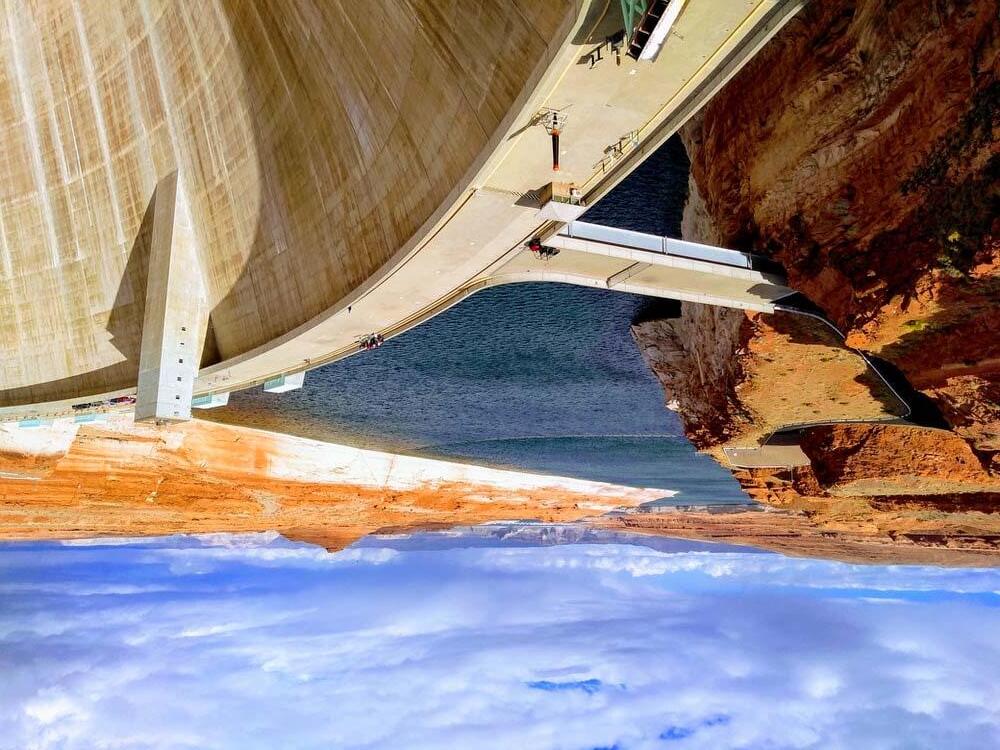


By more than a two-to-one ratio, Western voters prioritize expanding clean energy over fossil fuels to meet our energy needs –unchanged in over a decade.
2023 2012


Reducing our need for more coal, oil and gas by expanding our use of clean, renewable energy that can be generated in the US
Drilling and digging for more coal, oil and gas wherever we can find it in the US
Next,whichofthefollowingdoyouthinkshouldbethehighestpriorityformeetingAmerica’senergyneeds:



Next,whichofthefollowingdoyouthinkshouldbethehighestpriorityformeetingAmerica’senergyneeds:






Allowing Oil & Gas Companies Right to Drill in Areas of High Likelihood to Produce Oil & Gas
Strongly Support



Total Support
Foreachone,pleasetellmeifyouwouldsupportoropposeasimilarproposalinyourstate.Onlyallowingoilandgascompaniestheright todrillinareasofpubliclandwherethereishighlikelihoodtoactuallyproduceoilandgas.(AskedN=1,709Respondents)



Western voters are supportive of only allowing drilling on public land where there is high likelihood to produce oil and gas.
Over the past few years, requiring oil and gas companies to use updated equipment and technology to prevent methane gas leaks has remained very popular among Western voters.
Requiring Oil & Gas Companies to Reduce Methane Leaks
Foreachone,pleasetellmeifyouwouldsupportoropposeasimilarproposalinyourstate.Requiringoilandgascompaniestouseupdated equipmentandtechnologytopreventleaksofmethanegasandotherpollutionintotheair.(AskedN=1,704Respondents)






Requiring Oil & Gas Companies to Reduce Methane Leaks



Foreachone,pleasetellmeifyouwouldsupportoropposeasimilarproposalinyourstate.Requiringoilandgascompaniestouseupdated equipmentandtechnologytopreventleaksofmethanegasandotherpollutionintotheair.(AskedN=1,704Respondents)



Across all states, requiring oil and gas companies to use updated equipment and technology to prevent methane gas leaks is strongly supported.
Requiring oil and gas companies to pay for clean-up and land restoration costs after drilling is finished is still supported by a vast majority of Western voters.
Requiring Oil & Gas Companies to Pay for Clean‐up/Restoration




Foreachone,pleasetellmeifyouwouldsupportoropposeasimilarproposalinyourstate.Requiringoilandgascompanies,ratherthan federalandstategovernments,topayforalloftheclean-upandlandrestorationcostsafterdrillingisfinished.(AskedN=1,709 Respondents)


Each Western state is very supportive of requiring oil and gas companies to pay for clean-up and land restoration costs after drilling is finished.
Requiring Oil & Gas Companies to Pay for Clean‐up/Restoration




Foreachone,pleasetellmeifyouwouldsupportoropposeasimilarproposalinyourstate.Requiringoilandgascompanies,ratherthan federalandstategovernments,topayforalloftheclean-upandlandrestorationcostsafterdrillingisfinished.(AskedN=1,709 Respondents)


Two-thirds of Western voters are still supportive of a gradual transition to 100% renewable energy over the next 10-15 years.
Foreachone,pleasetellmeifyouwouldsupportoropposeasimilarproposalinyourstate.Graduallytransitioningtoonehundredpercent ofourenergybeingproducedfromclean,renewablesourceslikesolarandwindoverthenexttentofifteenyears.(AskedN=1,709 Respondents)

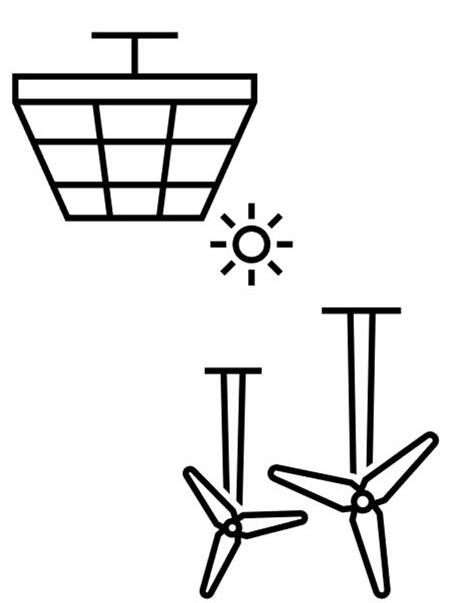






Outside of Wyoming, most voters in each Western state support gradually transitioning to 100% renewable energy.




Foreachone,pleasetellmeifyouwouldsupportoropposeasimilarproposalinyourstate.Graduallytransitioningtoonehundredpercent ofourenergybeingproducedfromclean,renewablesourceslikesolarandwindoverthenexttentofifteenyears.(AskedN=1,709 Respondents)


Extremely Serious Very Serious Somewhat Serious


Foreachone,pleasetellmeifyouthinkitisanextremelyseriousproblem,averyseriousproblem,asomewhatseriousproblem,ornotaproblem in(STATE).Theimpactofoilandgasdrillingonourland,airandwater(AskedN=1,704Respondents)

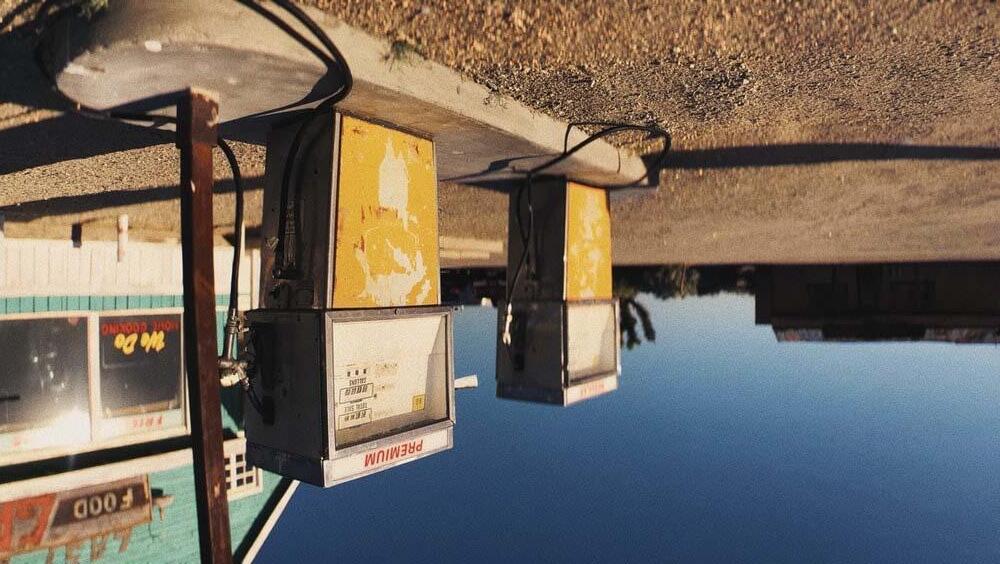

Showing2020-2022databyjust2011states:CO,MT,NM,UT&WY


While there has been a slight decline in Western voters saying the impact of oil and gas drilling is a serious problem, almost two-thirds are still concerned.
Three-quarters of Colorado voters say the impact of oil and gas drilling on natural resources is a problem.
The impact of oil and gas drilling on our land, air and water
Extremely/Very Serious Problem


Total Serious Problem

Foreachone,pleasetellmeifyouthinkitisanextremelyseriousproblem,averyseriousproblem,asomewhatseriousproblem,ornotaproblem in(STATE).Theimpactofoilandgasdrillingonourland,airandwater(AskedN=1,704Respondents)






Foreachone,pleasetellmeifyouthinkitisanextremelyseriousproblem,averyseriousproblem,asomewhatseriousproblem,ornotaproblem in(STATE). Lossofhabitatforfishandwildlife(AskedN=1,704Respondents)






Loss of habitat for fish and wildlife continues to be viewed as an extremely or very serious problem by a majority of Western voters.
Nearly three-in-five Montana voters say the loss of fish and wildlife habitat is an extremely or very serious problem.
Extremely/Very Serious Problem



Total Serious Problem
Foreachone,pleasetellmeifyouthinkitisanextremelyseriousproblem,averyseriousproblem,asomewhatseriousproblem,ornotaproblem in(STATE). Lossofhabitatforfishandwildlife(AskedN=1,704Respondents)









Fish and wildlife population declines are seen as a serious problem by more than three-in-four voters in every state.
Extremely/Very Serious Problem


Total Serious Problem
Foreachone,pleasetellmeifyouthinkitisanextremelyseriousproblem,averyseriousproblem,asomewhatseriousproblem,ornotaproblem in(STATE).Populationdeclinesoffishandwildlife(AskedN=1,709Respondents)





Very Important

Total Important
Foreachofthefollowingitems,pleaseindicateifyouthinkthatparticularreasonisveryimportant,somewhatimportant,nottooimportant,ornot importantatalltoyoupersonally.Toconservewildlifehabitatandmigrationroutes(AskedN=1,704Respondents)





Very Important

Total Important
Foreachofthefollowingitems,pleaseindicateifyouthinkthatparticularreasonisveryimportant,somewhatimportant,nottooimportant,ornot importantatalltoyoupersonally.Tohelpthreatenedwildlife(AskedN=1,709Respondents)




Nearly all voters in Arizona and Utah say that it is important to help threatened wildlife.
Constructing wildlife crossings across highways has majority support, including over two-thirds in Wyoming who strongly support this.
Constructing Wildlife Crossing Structures Across Major Highways Intersecting with Migration Routes
Strongly Support



Foreachone,pleasetellmeifyouwouldsupportoropposeasimilarproposalinyourstate.Constructingwildlifecrossingstructuresacross majorhighwaysthatintersectwithknownmigrationroutes.(AskedN=1,704Respondents)



Voters in Montana and Wyoming are the most likely of the Western states to be hunters and anglers.










Doyouconsideryourselfahunter,ananglerorboth?




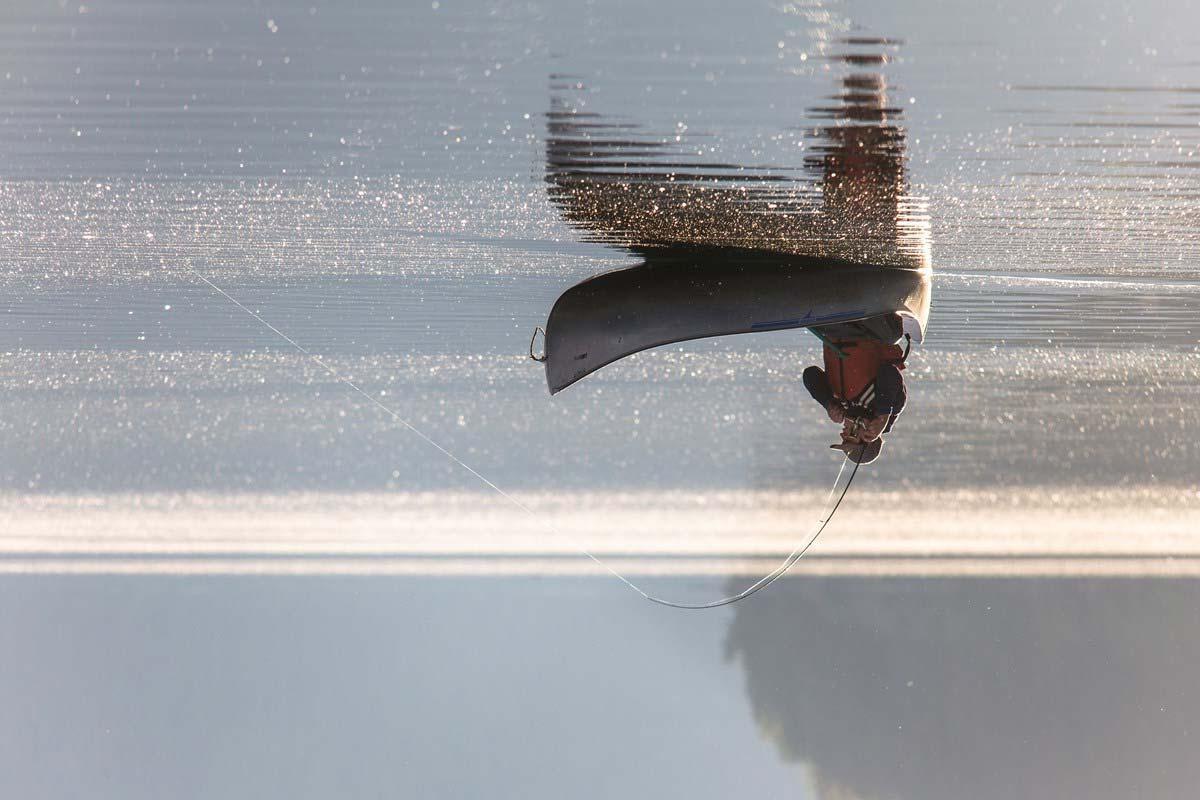


Most Western voters consider themselves conservationists. Montana and Wyoming are the most likely to feel this way, with nearly three-quarters labeling themselves accordingly.

Doyouconsideryourselftobeaconservationist?





Sportspeople are more likely to consider themselves conservationists than are people who do not hunt or fish.


Doyouconsideryourselftobeaconservationist?




Providing outdoor recreation opportunities is seen as important by over three-in-four Western voters. Majorities in Idaho, Montana, and Wyoming say this is very important.
To provide opportunities for hunting, fishing and outdoor recreation

Very Important

Total Important

Foreachofthefollowingitems,pleaseindicateifyouthinkthatparticularreasonisveryimportant,somewhatimportant,nottooimportant,ornot importantatalltoyoupersonally.Toprovideopportunitiesforhunting,fishingandoutdoorrecreation(AskedN=1,704Respondents)



Sportspeople, especially those who hunt, are much more likely to say it’s important to provide outdoor recreation opportunities than are those who do not hunt or fish.
To provide opportunities for hunting, fishing and outdoor recreation

TotalTotal HuntTotal FishBoth Hunt/FishNeither Hunt/Fish

Very Important

Total Important

Foreachofthefollowingitems,pleaseindicateifyouthinkthatparticularreasonisveryimportant,somewhatimportant,nottooimportant,ornot importantatalltoyoupersonally.Toprovideopportunitiesforhunting,fishingandoutdoorrecreation(AskedN=1,704Respondents)


A majority say conserving natural areas that connect lowerincome or communities of color is important. Colorado and Nevada voters are particularly likely to see the importance.
To conserve natural areas that connect lower income or communities of color which have historically lacked access to the outdoors
Very Important



Total Important
Foreachofthefollowingitems,pleaseindicateifyouthinkthatparticularreasonisveryimportant,somewhatimportant,nottooimportant,ornot importantatalltoyoupersonally. Toconservenaturalareasthatconnectlowerincomeorcommunitiesofcolorwhichhave historicallylackedaccesstotheoutdoors(AskedN=1,704Respondents)



To conserve natural areas that connect lower income or communities of color which have historically lacked access to the outdoors
Very Important



Total Important
Foreachofthefollowingitems,pleaseindicateifyouthinkthatparticularreasonisveryimportant,somewhatimportant,nottooimportant,ornot importantatalltoyoupersonally. Toconservenaturalareasthatconnectlowerincomeorcommunitiesofcolorwhichhave historicallylackedaccesstotheoutdoors(AskedN=1,704Respondents)



Around seven-in-ten Black and Native American voters say that it’s important to conserve natural areas that connect lowerincome or communities or color.
Directing funding to ensure adequate access to parks and natural areas for lower‐income people and communities of color that have disproportionately lacked them.
Foreachone,pleasetellmeifyouwouldsupportoropposeasimilarproposalinyourstate.Directingfundingtoensureadequateaccessto parksandnaturalareasforlower-incomepeopleandcommunitiesofcolorthathavedisproportionatelylackedthem.(Asked N=1,709Respondents)






Western voters are slightly more supportive of directing funding to ensure adequate access to parks/natural areas for lowerincome people and communities of color than two years ago.
Directing funding to ensure adequate access to parks and natural areas for lower‐income people and communities of color that have disproportionately lacked them.



Foreachone,pleasetellmeifyouwouldsupportoropposeasimilarproposalinyourstate.Directingfundingtoensureadequateaccessto parksandnaturalareasforlower-incomepeopleandcommunitiesofcolorthathavedisproportionatelylackedthem.(Asked N=1,709Respondents)



Western voters are very supportive of directing funding to ensure access to parks/natural areas for people who have lacked them, especially voters in Nevada and New Mexico.
A majority of voters continues to strongly support creating new protected areas, such as national parks, to protect historic sites and areas for outdoor recreation.
Creating new national parks, national monuments, national wildlife refuges and tribal protected areas to protect historic sites or areas for outdoor recreation.

Foreachone,pleasetellmeifyouwouldsupportoropposeasimilarproposalinyourstate.Creatingnewnationalparks,national monuments,nationalwildliferefugesandtribalprotectedareastoprotecthistoricsitesorareasforoutdoorrecreation.(Asked N=1,704Respondents)





Most voters in Arizona, Colorado, Nevada, and New Mexico strongly support creating new protected national areas.
Creating new national parks, national monuments, national wildlife refuges and tribal protected areas to protect historic sites or areas for outdoor recreation.




Foreachone,pleasetellmeifyouwouldsupportoropposeasimilarproposalinyourstate.Creatingnewnationalparks,national monuments,nationalwildliferefugesandtribalprotectedareastoprotecthistoricsitesorareasforoutdoorrecreation.(Asked N=1,704Respondents)


Nearly two-thirds of Western voters say crowding at outdoor recreation sites is a problem, especially in Colorado, Idaho, Montana, and Utah.
Crowding and more people at outdoor recreation sites like trails and parks
Extremely/Very Serious Problem



Total Serious Problem

Foreachone,pleasetellmeifyouthinkitisanextremelyseriousproblem,averyseriousproblem,asomewhatseriousproblem,ornotaproblem in(STATE).Crowdingandmorepeopleatoutdoorrecreationsitesliketrailsandparks(AskedN=1,709Respondents)


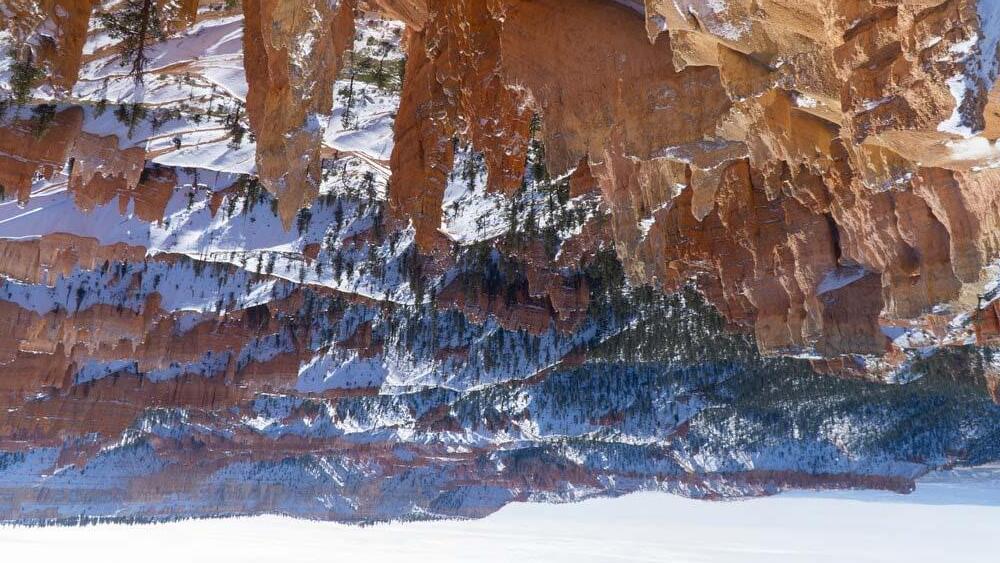


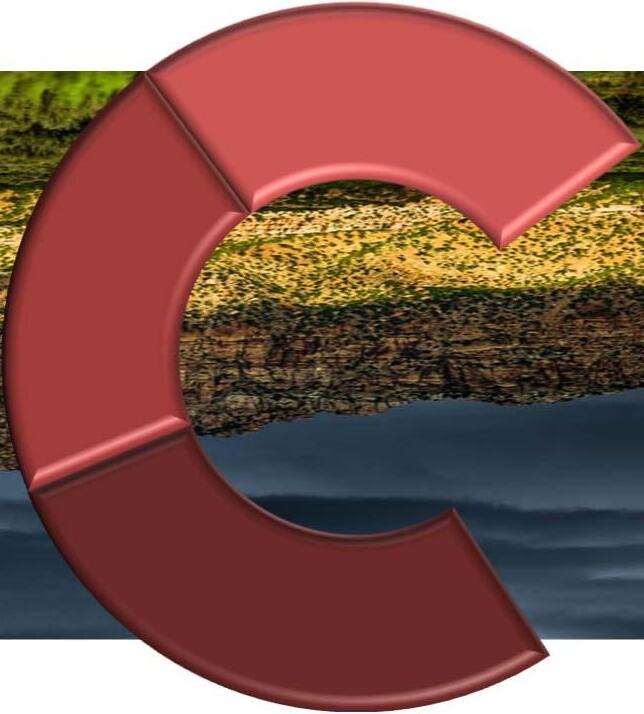

Foreachone,pleasetellmeifyouthinkitisanextremelyseriousproblem,averyseriousproblem,asomewhatseriousproblem,ornotaproblem in(STATE).Climatechange(AskedN=1,704Respondents)


Showing2021and2022databyjust2011states:CO,MT,NM,UT& WY



Extremely/Very Serious Problem




Total Serious Problem
Foreachone,pleasetellmeifyouthinkitisanextremelyseriousproblem,averyseriousproblem,asomewhatseriousproblem,ornotaproblem in(STATE).Climatechange(AskedN=1,704Respondents)


Colorado voters are the most likely to say that climate change is a serious problem.

Foreachone,pleasetellmeifyouthinkitisanextremelyseriousproblem,averyseriousproblem,asomewhatseriousproblem,ornotaproblem in(STATE).Climatechange(AskedN=1,704Respondents)





Most Gen Z and Millennial voters say that climate change is an extremely or very serious problem.

Foreachone,pleasetellmeifyouthinkitisanextremelyseriousproblem,averyseriousproblem,asomewhatseriousproblem,ornotaproblem in(STATE).Uncontrollablewildfiresthatthreatenhomesandproperty(AskedN=1,704Respondents)




Showing2020-2022databyjust2016states:AZ,CO,MT,NM,NV,UT & WY


A majority of Western voters say that uncontrollable wildfires that threaten homes and property is a serious problem, albeit down slightly from previous years with more notable fires.
More than three-in-five voters in Colorado, Montana and New Mexico view wildfires that threaten homes and property as an extremely or very serious problem.
Uncontrollable wildfires that threaten homes and property
Extremely/Very Serious Problem



Total Serious Problem
Foreachone,pleasetellmeifyouthinkitisanextremelyseriousproblem,averyseriousproblem,asomewhatseriousproblem,ornotaproblem in(STATE).Uncontrollablewildfiresthatthreatenhomesandproperty(AskedN=1,704Respondents)



Smoke from wildfires during fire season is still seen as a serious problem by a vast majority of Western voters.
Smoke from wildfires during fire season
20222023

Extremely/Very Serious Problem


Total Serious Problem
Foreachone,pleasetellmeifyouthinkitisanextremelyseriousproblem,averyseriousproblem,asomewhatseriousproblem,ornotaproblem in(STATE).Smokefromwildfiresduringfireseason(AskedN=1,709Respondents)



Wildfire smoke during fire season is seen as a problem by most Western voters. Nine-in-ten Montana voters agree with this, though it is seen as less of a problem in Nevada.
Smoke from wildfires during fire season
Extremely/Very Serious Problem



Total Serious Problem
Foreachone,pleasetellmeifyouthinkitisanextremelyseriousproblem,averyseriousproblem,asomewhatseriousproblem,ornotaproblem in(STATE).Smokefromwildfiresduringfireseason(AskedN=1,709Respondents)







